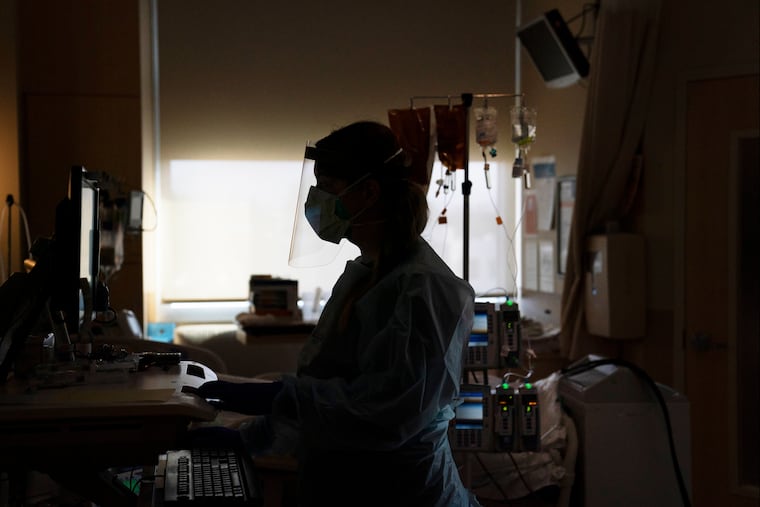Nursing shortage can be fixed by speeding up the licensing process
Eliminating layers of government bureaucracy may help keep hospital workers engaged in the profession, writes Jennifer Stefano.

Pennsylvania is currently enduring one of the worst nurse shortages in the nation. A shocking one in four nursing positions went unfilled last year — a trend experts predict will worsen, with an estimated shortfall of 20,000 nurses by 2026.
Gov. Tom Wolf’s administration is doing little to address this crisis. The Pennsylvania State Department recently announced an end to the professional licensing waivers that allowed nurses to work more independently during the pandemic. Meanwhile, licensing delays at the State Board of Nursing continue to grow, and legislation to expand access to nurse practitioners remains stalled in the state Senate.
No wonder so many medical professionals are ready to call it quits.
At issue is whether nurse practitioners should have the ability to see patients without a collaborative agreement with a physician. Those agreements are expensive, and there is no evidence that they improve the quality of care.
Betsy Snook, CEO of the Pennsylvania State Nurses Association, explained it this way: “They’re emotionally exhausted, they’re physically exhausted, we add to that the frustration of not being able to get your license, and then what happens, you don’t even get your license,” Snook said. “Now you can’t even work … you’re at the mercy of the state board of nursing.”
» READ MORE: 5 medical professionals on why they stay as hospital workers flee post-COVID
Even during a national health-care crisis, Pennsylvania refused to let nurse practitioners work independently. Instead, they agreed to allow nurses to practice outside of their focus under the supervision of one, instead of two, doctors. That’s not good enough, especially considering Pennsylvania ranks fifth in terms of medically underserved areas and populations.
Legislation like Senate Bill 25 would help remove outdated restrictions on nurse practitioners that prevent them from fully exercising their extensive training.
Today, 26 states — including every Northeastern state except Pennsylvania and New Jersey — allow nurse practitioners to evaluate, diagnose, and initiate treatments for patients if they meet state and national certification requirements. The National Academy of Medicine and the National Council of State Boards of Nursing both support full practice for nurse practitioners. Pennsylvania is falling behind.
On top of useless restrictions and barring nurse practitioners from full practice authority, there is yet another government obstacle for Pennsylvania nurses.
Nurses seeking Pennsylvania licenses — whether moving from out of state or recently graduating — face long processing times and delays. More than half of the 12,000 nurses who were issued licenses to work in Pennsylvania in 2021 waited longer than three months to obtain them, according to an analysis by NPR. That’s one of the longest waiting periods in the 32 states where data is available.
Government rules are discouraging nurses and reducing access to health care.
» READ MORE: ‘I see someone quit every day’: Nurses, in their own words | Expert Opinion
Even a simple name change for in-state nurses can take years for the Pennsylvania State Board of Nursing to approve. Susan Klingaman, of York, waited for two years to renew her license after changing her name following a divorce. During her wait, she received no answers when trying to contact the board.
“My biggest frustration was when you would call there to find out the status [and] no one would know,” Klingaman said. “They would just say, ‘You’re on a list and I can’t even tell you are where you are. And I can’t tell you when you’re going to get a paper license.’ It just continued. And most days, they didn’t even answer the phone.”
It’s not just nurses who suffer. While nurses wait for a piece of paper from the state board, patients are waiting for critical medical care.
Lawmakers must act immediately, allowing nurses to do their jobs by permanently eliminating useless regulations, allowing independent practice, and holding license boards accountable.
The sick need care, not government bureaucracy.
Jennifer Stefano is the executive vice president of the Commonwealth Foundation and a fellow at the Independent Women’s Forum. @jenniferstefano